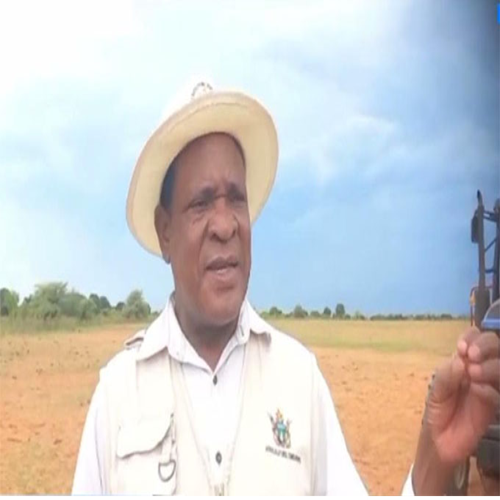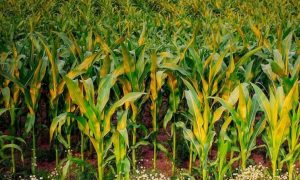‘450 000 tonnes in strategic grain reserve’

ZIMBABWE has 450 000 tonnes of cereals in the strategic grain reserve which, with imports and the next harvest, will ensure no one will starve despite crop failure and reduced yields caused by erratic rains due to El-Nino.
Speaking at Banga Irrigation Scheme in Chivi South Constituency at the weekend, Lands, Agriculture, Fisheries, Water and Rural Development Minister Dr Anxious Masuka said the country has 190 000 tonnes of maize at the Grain Marketing Board and 260 000 tonnes of wheat, which is 450 000 tonnes of cereals.
“According to our preliminary estimates, the majority of households around the country only have meagre food stocks that are enough to last them up until around the end of winter and the Government has plans to start food distribution to vulnerable households soon after that.
“This time, the food will be distributed to all those in need and we are going to make sure that no one starves. President Mnangagwa has already given the nation an assurance that no one will die of hunger.”
Minister Masuka said the Government will move away from the old model where food was distributed per household, with every vulnerable person in terms of food getting a monthly allocation.
Realising the threat to food security due to irregular rainfall as a result of climate change, Government is now intensifying the rehabilitation of irrigation schemes around the country to boost agricultural productivity.
Minister Masuka said irrigation schemes are key to helping the nation fight-off hunger and Zimbabwe has 460 irrigation schemes and those in need of revitalisation will be attended to, for increased food production.
All 460 irrigation schemes, once rehabilitated, have potential to give about 20 000 hectares of irrigable land and produce about 100 000 tonnes of maize. “The same land can also be put under winter wheat to produce a substantial amount of wheat to feed the nation,” Minister Masuka said.
Government is working round the clock to make sure viable irrigation schemes receive inputs this year as President Mnangagwa’s administration moves to fully utilise the nation’s irrigation potential to become food secure.
Going forward, plans are already in motion for block farming at irrigation schemes to make sure all potentially irrigable land is used.
Minister Masuka said Government was working flat out to ensure water from the giant Tugwi-Mukosi Dam, the country’s largest inland lake, was used for irrigation and turn southern Masvingo into a greenbelt.
Among the irrigation schemes poised to benefit from water from this dam is Banga Irrigation Scheme, which is close to the dam and receives insufficient water from the original smaller dam connected to the scheme.
Tugwi-Mukosi has potential to irrigate more than 40 000ha and Government is planning an investment conference, which will, among other things, attract capital for irrigation development in southern Masvingo.
Banga Irrigation Scheme chairperson Mr Munorwei Mateza paid tribute to President Mnangagwa for his Government’s commitment to expand the irrigation scheme. Beneficiaries at the scheme were eyeing value-addition, so as to generate more money.
“We are happy that the Government has undertaken to help us with additional water from Tugwi-Mukosi Dam so that we can irrigate our crops throughout the year. “We are sometimes forced to stop irrigation when water from Banga Dam drops to unsustainable levels, but we have received a commitment from
the Government that will get water from Tugwi-Mukosi Dam to augment supplies from the existing dam that we rely on,” he said.
Mr Mateza said the plan was to expand Banga Irrigation to over 100ha from the present 62ha, a development that will be made possible through drawing water from Tugwi-Mukosi. Banga irrigation scheme is arguably the biggest in drought-prone Chivi District and is the food lifeblood for
Ngundu Growth Point and rural communities in Shindi communal lands.
The irrigation scheme has 285 beneficiaries and was rehabilitated by the Government under the ongoing revitalisation programme that seeks to cushion the country from drought-induced food shortages.
Source Link : https://www.herald.co.zw/450-000-tonnes-in-strategic-grain-reserve/

















